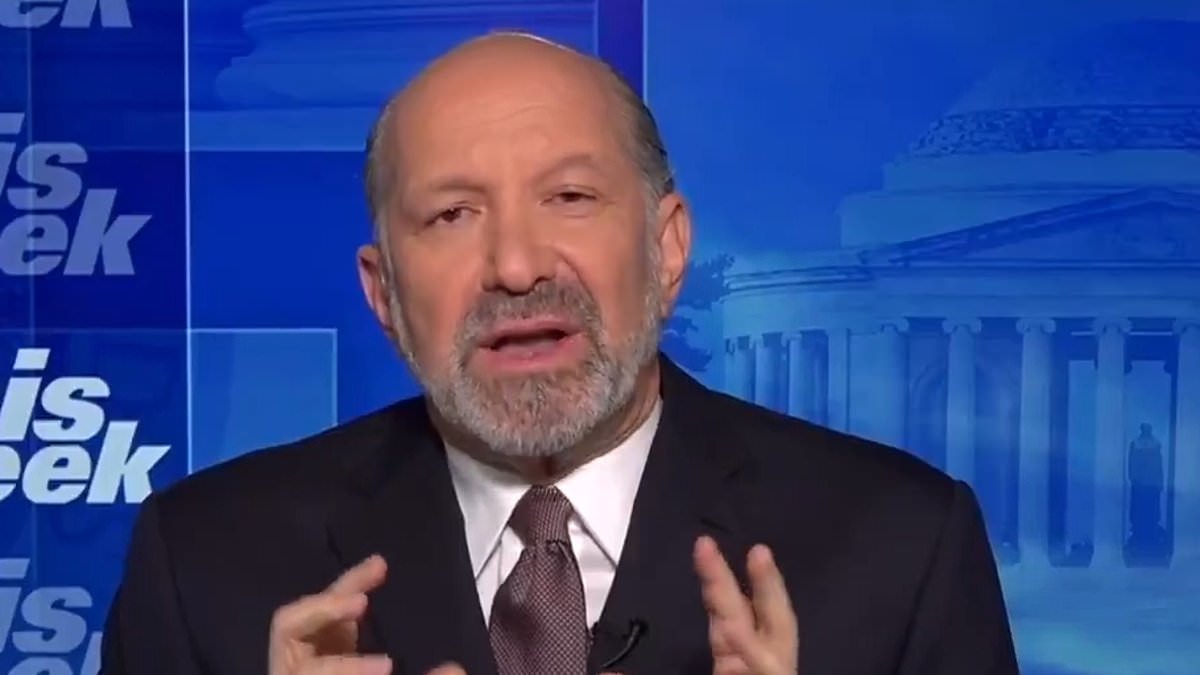President Trump spared electronics like iPhones and laptops from his sweeping tariffs, but the exemptions will be short lived.
Commerce Secretary Howard Lutnick said on Sunday those products will be part of the tariffs that are still to come.
The top Trump administration official appeared on ABC News’ ‘This Week’ where he was asked by host Jon Karl about the electronic exemption revealed in a notice late Friday.
‘Well remember those products are going to be part of the semiconductor sectoral tariffs which are coming,’ Lutnick said.
He said like the separate pharmaceutical and auto tariffs, the electronics will face levies as part of the semiconductor tariffs.
‘They’re going to have a special focused type of tariff to make sure that those products get reshored,’ Lutnick explained.
He argued such products need to be made in America, so the electronics are exempt from the ‘reciprocal’ tariffs but will be included in tariffs coming ‘in a month or two.’
He said they will have a ‘tariff model in order to encourage them to reshore to be built in America.’
‘This is not like, a permanent sort of exemption,’ Lutnick said.
In a notice revealed late on Friday, the unexpected tariff exclusion allowed gadgets will avoid Trump’s 125 percent import tax on Chinese goods – and even his sweeping 10 percent global tariff.
The list of spared items includes smartphones, laptop computers, hard drives, memory chips and processors – all tech essentials that are rarely made in the United States.
Experts say it would take years to ramp up domestic production, if it happens at all.
More than 80 percent of all Apple products are made in China — including a staggering 80 percent of iPads and over half of all Mac computers, according to data from Evercore ISI.
In the days following Trump’s tariff announcement, Apple saw $640 billion wiped from its market value.
But it is not clear at the time if the tariff timeout is permanent.
The White House’s move appeared to stem from technical rules that stop overlapping tariffs – meaning the products could have still faced new levies in the near future.
Lutnick confirmed on Sunday that the exemptions would be temporary.
Trump’s current industry-focused tariffs sit at 25 percent, but it’s unclear what rate semiconductors, chipmaking tools and other electronics could ultimately face.
Analysts warn that relocating iPhone production to the U.S. would be a monumental task, both logistically and financially.
Bank of America Securities analyst Wamsi Mohan previously estimated that producing the iPhone 16 Pro Max domestically could increase its price by 91 percent, pushing it from $1,199 to approximately $2,300.
Wedbush Securities analyst Dan Ives also suggested the cost could soar even higher, potentially reaching $3,500 per unit.
The challenges stem from higher labor costs in the U.S. — around $200 per unit compared to $40 in China — and the lack of a skilled workforce for specialized manufacturing tasks.
Apple CEO Tim Cook has previously highlighted the scarcity of qualified tooling engineers in the U.S., noting that while China boasts a vast pool of such talent, the U.S. has a significant shortfall.
In response to the escalating tariffs, Apple has taken swift action to mitigate potential disruptions.
The company chartered flights to expedite the shipment of approximately 1.5 million iPhones from India to the U.S., aiming to preempt the impact of the tariffs.
This move underscores Apple’s reliance on its global supply chain and the challenges of rapidly adjusting production logistics.
